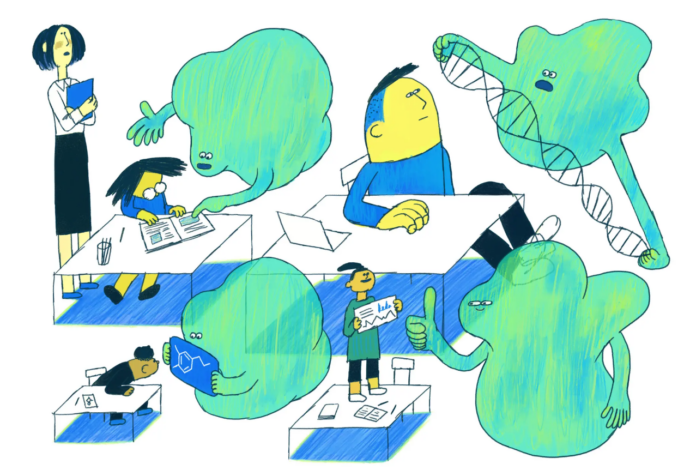Introduction:
Recently, I gave a talk to a group of K-12 teachers and public school administrators in New York. The topic was artificial intelligence, and how schools would need to adapt to prepare students for a future filled with all kinds of capable A.I. tools.
But it turned out that my audience cared about only one A.I. tool: ChatGPT, the buzzy chatbot developed by OpenAI that is capable of writing cogent essays, solving science and math problems and producing working computer code.
ChatGPT is new — it was released in late November — but it has already sent many educators into a panic. Students are using it to write their assignments, passing off A.I.-generated essays and problem sets as their own. Teachers and school administrators have been scrambling to catch students using the tool to cheat, and they are fretting about the havoc ChatGPT could wreak on their lesson plans. (Some publications have declared, perhaps a bit prematurely, that ChatGPT has killed homework altogether.)
Cheating is the immediate, practical fear, along with the bot’s propensity to spit out wrong or misleading answers. But there are existential worries, too. One high school teacher told me that he used ChatGPT to evaluate a few of his students’ papers, and that the app had provided more detailed and useful feedback on them than he would have, in a tiny fraction of the time.
“Am I even necessary now?” he asked me, only half joking.
Some schools have responded to ChatGPT by cracking down. New York City public schools, for example, recently blocked ChatGPT access on school computers and networks, citing “concerns about negative impacts on student learning, and concerns regarding the safety and accuracy of content.” Schools in other cities, including Seattle, have also restricted access. (Tim Robinson, a spokesman for Seattle Public Schools, told me that ChatGPT was blocked on school devices in December, “along with five other cheating tools.”)
It’s easy to understand why educators feel threatened. ChatGPT is a freakishly capable tool that landed in their midst with no warning, and it performs reasonably well across a wide variety of tasks and academic subjects. There are legitimate questions about the ethics of A.I.-generated writing, and concerns about whether the answers ChatGPT gives are accurate. (Often, they’re not.) And I’m sympathetic to teachers who feel that they have enough to worry about, without adding A.I.-generated homework to the mix.
But after talking with dozens of educators over the past few weeks, I’ve come around to the view that banning ChatGPT from the classroom is the wrong move.
Instead, I believe schools should thoughtfully embrace ChatGPT as a teaching aid — one that could unlock student creativity, offer personalized tutoring, and better prepare students to work alongside A.I. systems as adults. Here’s why…
Personal Reflection:
ChatGPT is a hot topic recently. Many students are using AI for academic dishonesty such as cheating, which worries many people. In fact, the topic may be far hotter than we can imagine. My parents in China have also sent me links about it and talked about their concerns. However, this article brings a different perspective to the AI. The authors point out that we don’t need to worry too much about the inappropriate use of AI software like ChatGPT in academia: First, the first reason not to ban ChatGPT in schools is that it won’t work that well. Also, if used in the right way, it can be an effective teaching tool. The process of using AI not only deepens students’ understanding of the system. It also teaches them how to interact with AI models and how to get useful responses from them. This special perspective is the reason for my choice of this article.
Reference:
Roose, K. (2023, January 12). Don’t ban chatgpt in schools. teach with it. The New York Times. Retrieved February 6, 2023, from https://www.nytimes.com/2023/01/12/technology/chatgpt-schools-teachers.html




